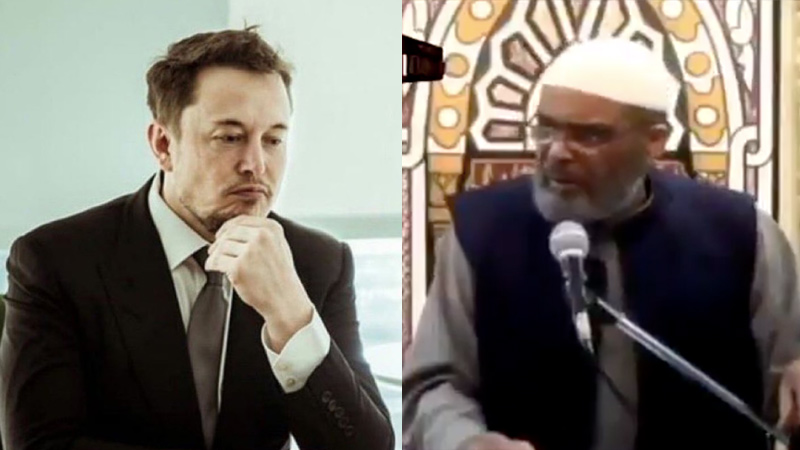 Image Credit: Kevin Dietsch / Staff / Getty
Image Credit: Kevin Dietsch / Staff / Getty Appearing before the House Judiciary Committee, British MP Nigel Farage issued a stark warning about Britain’s trajectory on speech regulation, arguing that UK law now poses a direct threat not only to free expression at home, but also to core American liberties abroad.
In testimony submitted to the US Congress during a hearing titled “Europe’s Threat to American Speech and Innovation,” the Reform Party leader detailed how the United Kingdom’s Online Safety Act (OSA), passed in 2023, is already being used to pressure American platforms into adopting restrictive UK speech codes, many of which would be flatly unconstitutional under the First Amendment.
Farage said the OSA “integrates the United Kingdom’s broad, speech-related criminal offenses with sweeping duties imposed on online platforms,” placing enforcement power in the hands of Ofcom, Britain’s communications regulator.
That authority, he warned, now includes the right to demand self-incriminating data from platform operators, punish non-compliance with up to two years’ imprisonment, and seek court orders to block access to non-compliant services.
“Ofcom has already threatened four American companies with exactly these penalties,” Farage told lawmakers. “I repeat: regulatory bodies in the United Kingdom are actively threatening to imprison American citizens for exercising their protected Constitutional rights.”
This is not a hypothetical scenario. Just last week, two US-based platforms filed suit in Washington, DC, seeking protection against UK enforcement attempts.
Their case shows the growing tension between the UK’s new speech suppression regime and America’s longstanding protections for political and controversial speech.
Under the OSA, the UK can extend its rules to any platform with “links to the UK,” a vague standard that includes merely having British users, even if a platform has no physical or legal presence in the country. This creates what Farage calls “powerful, and unconstitutional, extraterritorial pressures.”
Ofcom’s fines, which can reach 10% of a company’s global revenue, effectively force international platforms to choose: either conform to UK censorship demands or face financial ruin and bans within the UK market.
Farage remarked: “Claiming that American companies using American servers must follow UK content moderation law is like claiming that UK law applies to Americans who receive a telephone call from the UK.”
Startups and smaller companies are especially vulnerable. The cost of compliance with Ofcom’s complex takedown rules, record-keeping requirements, and risk assessments amounts to a structural disadvantage for any US-based service that refuses to preemptively silence speech the UK might find offensive.
Adding to the alarm, Farage noted the new criminal offenses created under the OSA, including a “false communications” law that criminalizes sending messages known to be untrue and intended to cause “non-trivial psychological harm.” The law does carve out exemptions for certain broadcasters and news publishers, but applies broadly to ordinary citizens.
Farage pointed to the prosecution of Lucy Connolly as a clear sign of the UK’s hardline approach to online expression.
After posting a charged message on X following a violent incident in Southport, Connolly was arrested and sentenced to 31 months in prison under the Public Order Act.
Though her case was not brought under the OSA, Farage argued it revealed a legal system increasingly willing to criminalize speech that is merely provocative or offensive.
“What Lucy Connolly said in her X message, which was only visible for 3.5 hours, may have been expressed inelegantly, but it was a sentiment that was being felt by a lot of the public at that moment, and it should not have been criminalized,” Farage stated.
“When the government starts regulating speech in this way, it is rarely those that agree with the government who find themselves in court.”
He emphasized that the UK has long prosecuted even silent protest, such as praying on a sidewalk, and warned that such examples show how low the UK’s threshold has become for punishing speech that would remain protected in the US.
The OSA’s requirements also place encrypted communications at risk. Farage pointed to growing concerns that UK mandates will lead to the deployment of surveillance tools, such as client-side scanning, that undermine privacy and are incompatible with end-to-end encryption.
He cited industry analysis warning that “no ‘accredited technology’ currently exists that can both scan at scale and preserve genuine E2EE,” suggesting the UK’s approach risks eroding cybersecurity while offering only the illusion of safety.
This, combined with the burden of compliance, may drive American innovation out of the UK altogether.
“If the UK forces American companies to block VPN access, that would prevent legitimate American users of those VPN services from accessing content that is lawful in the USA,” Farage added.
Farage argued the problem is one of legal incompatibility.
UK law has increasingly adopted a censorial posture, while American law remains anchored to the principle that the government may not ban speech simply because it is offensive or upsetting.
“Ofcom’s ambitions are to ensure that every internet platform in the world, if it is accessible by UK nationals, must implement the Online Safety Act’s ‘illegal content’ rules,” he said.
“This effectively means that American platforms must choose between surrendering their First Amendment rights or complying with the Online Safety Act.”
Such a conflict, he warned, cannot be reconciled. It forces companies to pick a side: freedom or conformity.
To counter the spread of foreign censorship norms, Farage called on Congress to take a firm stance:
- Declare that foreign speech laws have no bearing on Americans or American-hosted services, even when accessed overseas.
- Protect strong encryption without backdoor scanning requirements.
- Establish safe-harbors for US startups, insulating them from foreign regulatory overreach.
- Demand due-process guarantees for any foreign content takedown orders.
“Americans share the UK’s goals of combating illegal content and protecting children online,” Farage said. “But those objectives must not become a back door for importing foreign speech standards that erode First Amendment values, weaken encryption, and stifle US innovation.”
Farage concluded with an appeal to shared Anglo-American heritage. He reminded Congress that “every signatory of the American Declaration of Independence was, after all, a British subject.”
“Free speech is a fundamentally British value,” he said.
“On the question of civil liberties, Britain has, unfortunately, now lost her way. I will do my part, as a participant in UK democracy, to help our country find its way back to the traditional freedoms which have long bound together our two countries in friendship.”
Until then, he called on the United States to stand firm. “British free speech rules, applicable to Britons, are made in Britain, and American speech rules, applicable to Americans, are made in America.”
Farage left no room for ambiguity: the future of global speech freedom may depend on whether the US remains a place where open platforms can still be built without submission to authoritarian regulatory demands.
“Somewhere on this planet of ours, innovators must remain free to build the next generation of platforms without being hamstrung by illiberal and authoritarian censorship regimes that are alien to both American and traditionally British values,” he said. “Right now, that place is America.”


